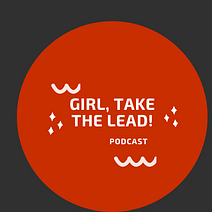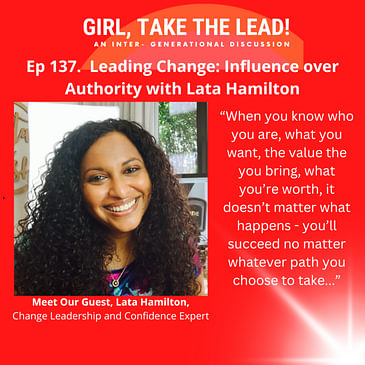Lata Hamilton, Millennial, joins Yo to talk about changing careers with confidence and reflecting who you are. Lata is a Change Leadership and Confidence expert, and the creator of the “Leading Successful Change” program.
Together, Lata and Yo, explore these topics: Changing the way we work Carving our own path Doing the role not the title Fractional leadership Fear and change AI’s impact in the future and developing our core confidence to change
Here are the three takeaways from today’s episode:
1. Change is inevitable and we can be flexible and resilient by knowing who we are, the value that we bring, and our worth.
2. We need to plan for the future like looking at how AI will change our work.
3. Creating a new persona that’s not attached to our titles can help us use influence versus authority.
As Mentioned:
Lata’s free Underpaid and Overlooked Coaching Action Guide at www.latahamilton.com/worthit
More About Lata: After tripling her salary in just 3 years to almost $200,000, her mission is to help millennial women carve their own paths for change in career, leadership and life, and find the confidence and authenticity to truly earn their worth. Lata has worked with some of Australia’s biggest companies on changes that have impacted over 100,000 people, operating model changes impacting thousands, global cultural transformations, and digital transformation that is literally changing the way that we work.
Lata Offers:
Look to join her free Change Masterclass (March)
Her first book to be launched in late 2024
Instant Change Consultant Retreat planned in November 2024
How to Reach Lata:
Website: www.latahamilton.com
LinkedIn: https://www.linkedin.com/in/latahamilton/
How to Reach Yo Canny:
Our website:
You can send a message or voicemail there. We’d love to hear from you!
email:
yo@yocanny.com (Yo)
FB group: Girl, Take the Lead
https://www.facebook.com/groups/272025931481748/?ref=share
IG:
yocanny (Yo)
LinkedIn:
https://www.linkedin.com/in/yocanny/





